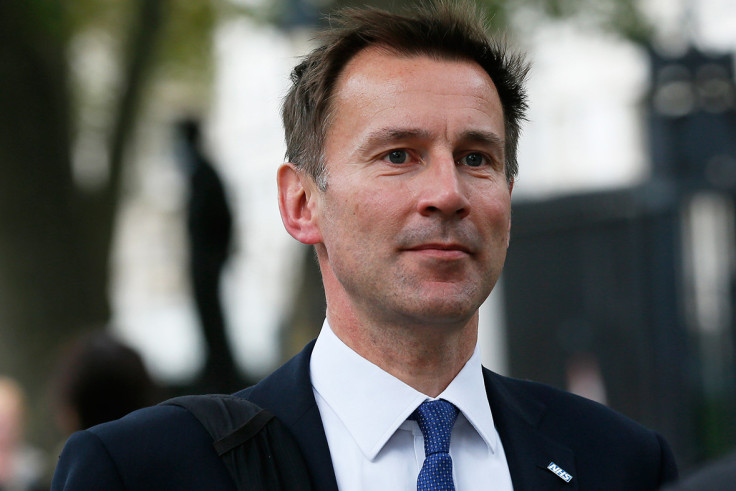Immunity for doctors and nurses who admit mistakes can end NHS blame culture says Jeremy Hunt

Doctors and nurses who admit their mistakes should not be punished under plans the Health Secretary hopes will encourage openness in the NHS.
Jeremy Hunt says that those medical staff needed "safe spaces" where what they said could not be disclosed, or used in a disciplinary action unless there was a court order.
Hunt hopes that it will end a blame culture in the NHS and stop staff from keeping their mistakes secret for fear of punishment, pointing out that airlines became safer when they encouraged pilots to admit mistakes that their colleagues could learn from.
He told The Times: "There's no hiding place for gross negligence but if you just make a human mistake we need to learn from it."
New legislation could also mean that local hospital investigators get powers to offer such immunity and families would be encouraged to alert them if they are suspicious of how relatives had died.
"To deliver a safer NHS for patients seven days a week, we need to unshackle ourselves from a quick-fix blame culture and acknowledge that sometimes bad mistakes can be made by good people.
"It is a scandal that every week there are potentially 150 avoidable deaths in our hospitals and it is up to us all to make the need for whistleblowing and secrecy a thing of the past," Hunt said.
Chairman of the British Medical Association council Mark Porter told the paper that NHS reforms needed to improve transparency by overcoming "an oppressive, management-driven culture".
The plans come as English hospitals get ready for a third strike by junior doctors in a dispute medics have with a government-imposed contract that would pave the way for a seven days a week health service.
The walkout on Wednesday 9 March will be the longest one yet, at 48 hours, leading to the postponement of 5,000 treatments.
Anne Rainsberry, national incident director for NHS England, said hospitals will make sure patients are safe.
"There are difficult days ahead for the NHS. We have been working closely with hospitals to ensure they have robust plans in place. It's a very fluid situation. Hospitals have been making decisions based on clinical priority."
© Copyright IBTimes 2025. All rights reserved.






















